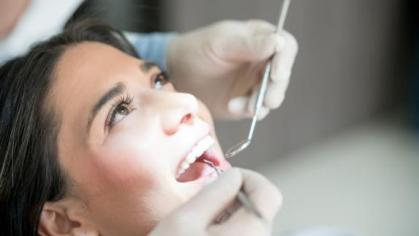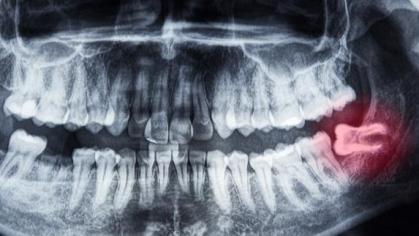Regaining Confidence after Tooth Decay
If you’ve ever had major tooth decay, you probably know just how detrimental it can be. When tooth decay occurs, plaque eats away at the enamel and slowly destroys the teeth. It can become very painful and difficult to eat. Many people lose confidence and self-esteem as their smile changes. So when patients with severely decayed teeth come to Rutgers Health University Dental Associates, they often feel hopeless. But treatment can help them get a beautiful, brand new smile.
What Causes Tooth Decay?
Most adults experience tooth decay at some point in their lives. According to a study published by the CDC, 91% of U.S. adults ages 20 – 64 had at least one cavity in their permanent teeth. Cavities occur when bacteria in the mouth produce acids that weaken and erode the enamel overtime, causing a hole to form in the tooth. If left untreated, this hole will continue to grow and cause health complications.
The majority of the time, tooth decay is caused by consuming sugary and sticky foods and by not brushing and flossing regularly. However, there are certain medications and some medical conditions that make people more likely to get tooth decay than others. These conditions include, but are not limited to, the following:
- Diabetes
- Oral cancer
- Eating disorders
- Iron deficiency/anemia
- Thyroid problems
- Temporomandibular disorder (TMD)
- Sjögren’s syndrome
- Acid reflux
- And more
Dental care can be frustrating for patients with these conditions because their body is fighting against them. A disease called Sjögren’s syndrome is one example. This is an autoimmune disease that primarily affects women. When someone has an autoimmune disease, their immune system attacks the body’s own cells and tissues. In the case of Sjögren’s, the body’s moisture-secreting glands are being attacked. One of the complications that can happen is having a lack of saliva in the mouth. Without saliva to wash away food debris, tooth decay is more likely to occur.
Tooth Decay Treatment
If one or a few teeth are decayed, treatment usually involves prosthodontics, like fillings or dental crowns. With advanced tooth decay, however, teeth may need to be removed and replaced. That’s what Rutgers Health University Dental Associates’ prosthodontist Dr. Mohamed Kamel recommended for 23-year-old Gemma Boyer, who suffered from Sjögren’s syndrome.
For her, Dr. Kamel performed a full-mouth reconstruction where he removed her existing teeth and replaced them all with prosthetic crowns and dental implants. The final result? A bright, beautiful and healthy new smile. Boyer’s confidence drastically improved and she was able to start eating solid foods again. Because of the severe tooth decay she had before, she had only been consuming soft foods and liquids. After seeking help from Rutgers Health University Dental Associates, she was able to discover all the possibilities of tooth decay treatment and start enjoying life again.
Chat with the Experts
No matter how severe your tooth decay may seem, you do have options – and the experts at Rutgers Health University Dental Associates can show you what they are. Visit our Newark or New Brunswick, NJ locations for an evaluation today. We have some of the most experienced and knowledgeable specialists in the area who are more than happy to help. Interested in making an appointment? Call 732-235-5050 (New Brunswick) or 973-972-2444 (Newark) now.



